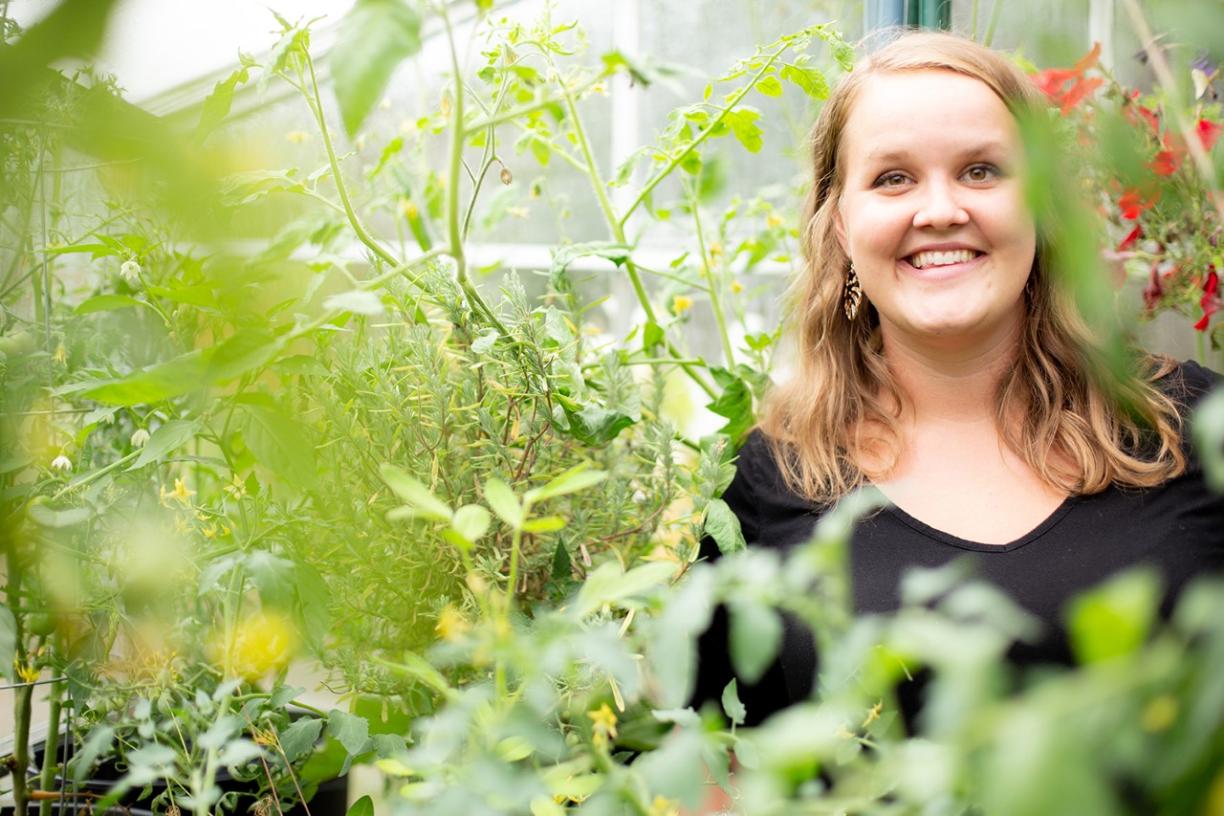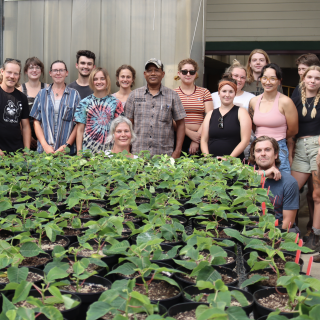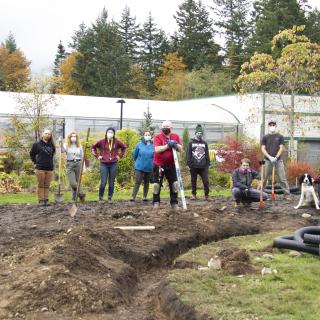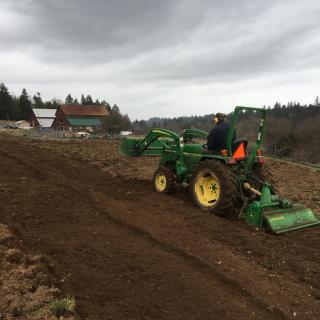Horticulture alum Bianca van der Stoel is happily educating people on the healing power of plants through her own horticultural therapy business.
After graduating from VIU’s Horticulture Technician program in 2019, Bianca van der Stoel has been busy growing her own Horticultural Therapy business, witnessing powerful moments of rehabilitation and joy as she helps people reconnect with nature. We caught up with Bianca to learn more about how her program helped her do what she’s doing now, and what’s next for her.
Why did you choose VIU?
I was drawn to VIU due to the unique location of both the horticulture campus and the university in general. Moving to Vancouver Island to study was such a wonderful opportunity, and the lifestyle of Nanaimo and my fellow classmates suited my interests and ambitions well. I had been working in Calgary, Alberta, in the health-care sector and was reading about the benefits of horticultural therapy. I realized that this suited my professional goals perfectly and is an incredible career that could bring great meaning to many people. My next step was to add horticulture education to my portfolio as I moved towards this new field.
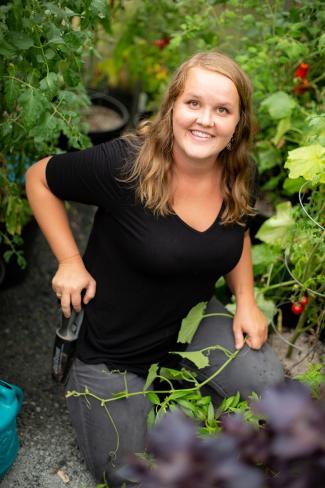
Tell us a bit about your experience at VIU.
VIU’s Horticulture program was an incredibly unique experience. The small, intimate campus was a pure joy to study at – imagine taking class breaks in greenhouses filled with plants or surrounded by landscaped gardens and forests! The program is run full-time, five days a week with the same group of classmates, and I built life-long personal and professional friendships throughout our time together. One thing that stands out was the incredibly supportive, close relationships I built with the instructors and dean. These individuals helped me shape my assignments and research to reflect the unique lens of horticultural therapy. One instructor, Christine Quist, went so far as to cold-call companies on my behalf, promoting the value of my therapeutic work and advocating for me as a student. One of these cold calls led to my practicum placement and, eventually, my first horticultural therapy contract.
Tell us about what you’re doing now.
I now work full-time offering horticultural therapy through my own private business. I have the privilege of offering nature- and plant-related therapy programs to Elders living with dementia and Alzheimer’s in Nanaimo and the surrounding area. I spend my days inviting individuals to reconnect with the earth, soil and garden. I watch powerful moments of rehabilitation, joy and a sense of purpose and identity in the final years of people’s lives.
What’s next for you?
I am now applying to take a Master of Public Health, continuing this vision of implementing horticultural therapy into the health-care sector. I intend to loudly promote the value of horticultural therapy and access to nature for all individuals, whether they are elders living in long-term care, isolated individuals or post-secondary students requiring stress release!
What are you most proud of since completing your program at VIU?
I have established a reputation in Nanaimo and within the Canadian Horticultural Therapy Association as a board member and Education Committee Coordinator. My roots are growing deeper in the professional horticulture therapy and health-care networks in our region, and I desire to continue to bring nature access to vulnerable individuals in our community. I am also proud of a project completed at Eden Gardens called Memory Lane, which was a volunteer-driven initiative to create a forest trail for staff and elders living and working at Eden Gardens. This forest trail has become a natural place for rest and respite, as well as connection, joy and stimulation.
Tell us a bit about horticultural therapy and why it’s so important to you.
Horticultural Therapy is the practice of connecting people with plants, gardening activities and nature for therapeutic experiences. I see this unfold in so many different ways – the hope and anticipation of an Elder planting spring flowers, the sense of purpose and contribution of seniors growing food for their neighbours, the cognitive clarity that comes when you’re standing in a forest, free from the distractions of life. Individuals from all walks of life are experiencing nature deficits and are losing touch with the incredible amount of healing, purpose and stimulation that awaits us in nature. These nature experiences can counteract the challenges we’re seeing in society right now – burnout, technological dependency, isolation and loneliness, sedentary lifestyles, a lack of meaning and purpose, and more.


